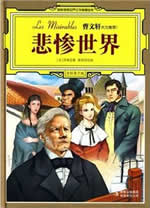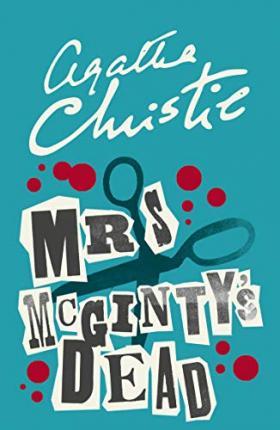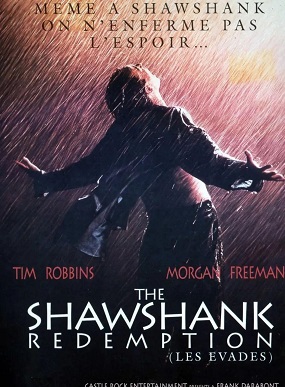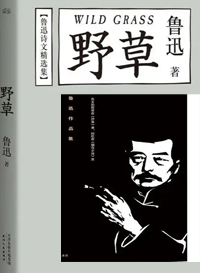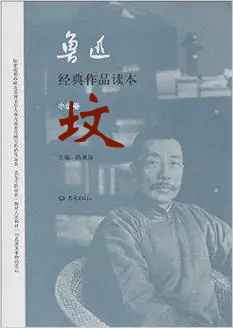“BUT good heavens! What is it?—Who are you?—” cried the Countess, trembling.
“Don’t be alarmed, Señora,” said Quentin. “We have no idea of harming you.”
“What do you want of me? I have no money with me.”
“We are not looking for money.”
“Then what do you want?”
“We’ll tell you that later. Have a little patience.”
Several moments passed in the carriage without the woman saying a word. She was huddled1 motionless against a window.
After some time had elapsed, the horses moderated their pace, one could hear the rain on the cover of the carriage. Suddenly Quentin heard the door-fastening rattle2.
“Don’t be foolish, my lady,” he said rudely. “And don’t try to escape. It will be dangerous.”
“This violence may cost you dear,” murmured the Countess.
“Most assuredly. We men are prepared for anything.”
“But if you don’t want my money, what do you want? Tell me, and let us bring this affair to a close at once.[262]”
“That is a secret that does not belong to me.”
“But, sir,” exclaimed the woman—“I’ll give you anything you want if you will only take me home.”
At this moment a flash of lightning violently illumined the night, and the Countess and Quentin were enabled to see each other’s faces in the spectral3 light. Then came a thunderclap as loud as a cannon4 shot.
“Oh, my God!” gasped5 the Countess as she devoutly6 crossed herself.
Quentin felt a tremor7 run through him at the sight of the woman’s terror, and said to her:
“My dear lady, do not let us cause you any alarm. Please rest assured that we have no intention of harming you. I rather think that the man on the box is some gentleman who is in love with you, and not being able in any other way to attain8 good fortune, is abducting9 you in this manner.”
Quentin’s accent, his gallant10 meaning in those circumstances must have surprised the Countess, as she made no answer.
“Don’t you think so?” said Quentin. “Don’t you believe that this is a matter of some one courting you?”
“It’s a fine way to court,” she replied.
“All ways are good if they come out right.”
“Do you believe that this method of treating a lady can come out right?”
“Why not? Other more difficult things have been seen in the world, and they do say that women like the novel.”
“Well, I don’t like it a bit.”
“Are you so prosaic11 that you are not enchanted12 by the thought of meeting soon a young, good-looking, respectful abductor who offers you his heart and life?[263]”
“No, I am not enchanted. What is more, if I could send that abductor to prison I would do so with much pleasure.”
“You know that love is intrepid13 and....”
Quentin was silent. He thought of the poem written by Cornejo for La Víbora.
“I don’t know why,” said the woman at length, “but it seems to me that I am beginning to realize who my abductor is. It strikes me that he is a half-relative of mine who dislikes me very much. A waif....”
“I think you are getting warm, my lady.”
“Who writes insults and calumnies14 about a woman who has never offended him.”
“You are not quite so near the point, there. Listen: The day before yesterday, that relative of yours was rushing madly about these God-forsaken streets, hounded by a dozen men; on a night that was as cold as the devil, he was on the point of throwing himself into the river and scraping an acquaintance with the shad that live in it.”
“So you are Quentin?”
“I am the lady’s most humble15 servant.”
“How you frightened me! I shall never forgive you for this night.”
“Nor will I forgive you for the one I spent the day before yesterday.”
“Where is my coachman? Is he on the box?”
“No, my lady.”
“Where is he?”
“He is conveniently drunk in a tavern16 on the Calle del Potro.”
“Then who is driving the carriage?”
“Pacheco.[264]”
“Pacheco! The bandit?”
“In person. In all ways a gentleman, and whom I shall have the pleasure of presenting to you tonight as soon as we reach the farm where we are to stop.”
“What are you two going to do with me there?”
“We shall think it over.”
“I believe you intend to kill me....”
“Kill you?—Nothing of the sort. We shall entertain you; you will take rides over the mountain; you’ll get a trifle brown—Besides, we are doing you a great favour.”
“Doing me a favour? What is it?”
“Keeping you from answering that little toreador who had the presumption17 to send you a note.”
“To send me a note?”
“Yes, my lady; you. As you came out of the theatre. I saw it with my own eyes.”
“It must be true if you saw it.”
“Of course it is! In the first place, that toreador is a stupid good-for-nothing who would go about boasting that you looked upon him with sympathy, and that....”
“Enough, or I’ll even have to thank you for bringing me here.”
“And it’s true.”
The Countess was growing calmer and less timid with every minute.
“How many days are you going to keep me kidnapped?” she asked rather jovially18.
“As many as you wish. When you get too bored, we’ll take you back to Cordova. Then, if you still bear us a grudge19, you may denounce us.”
“And if I don’t?[265]”
“If you don’t, then you will permit us to come to call some day.”
“We’ll see how you act.”
Just then the carriage stopped. Quentin prepared to get down, and said to the woman:
“I don’t know what Pacheco wants. Perhaps he’s tired of riding on the box.”
“Don’t leave me alone with him,” murmured the Countess.
“Never fear; Pacheco is absolutely a gentleman, and will take no undue20 liberties....”
“That makes no difference.”
“Then I shall tell him of your wish. If you want to be alone, tell me, and I’ll ride on the box.”
“No, no: I prefer you to ride with me.”
Pacheco jumped down from the box, and coming up to Quentin, said:
“It seems to me that I have done my duty like a man, and that it’s your turn to take my place on the box.”
“That’s what I think. Come, I’m going to present you to the Countess.”
Quentin opened the carriage door and said:
“Countess, this is my friend.”
“Good evening, Pacheco.”
“A very good evening to you, my lady.”
“How tired you are making yourselves on my account!”
“Señora Condesa!” stammered21 the bandit in confusion.
“You are very nice,” she added graciously.
“You are most flattering,” replied Pacheco.
“No; you two are the flatterers![266]”
“But are you sorry, my lady?” asked Pacheco gravely.
“I!—On the contrary; I am having a very good time.”
“That’s better, my lady. You mustn’t be afraid; if you order me to, we’ll go back this minute.”
The Countess considered for a moment, and then cried gayly:
“No; let us go on. We’ll go wherever you wish. You stay with me, Quentin, for I want to talk to you.”
Again Pacheco climbed to the box, clucked to the horses, and the carriage went on its way. It was beginning to clear up; here and there a patch of star-sprinkled sky appeared between the great, black clouds.
“He seems like a fine fellow,” said the Countess, who was now completely at her ease, when she and Quentin were alone.
“Do not deceive yourself; there are only two places where true gentlemen can be found: in the mountains, or in prison.”
“How awful!” she cried.
“That is the way the two extremes meet,” he went on. “When a man is a great, a very great rascal22, and utterly23 disregards the ideas of the people and everything else, he has reached the point where the bandit is joining hands with the gentleman.”
“See here, Sir Bandit,” said the Countess easily, “why did you take this dislike to me, and put me in the papers? Because I said that Rafaela was a hussy, and that she had married Juan de Dios for his money?”
“Yes, my lady.”
“Did I not speak the truth?[267]”
“It is true that she married; but it was not because she wished it, nor because she was ambitious to be rich, but because the family made her.”
“You should laugh at that idea, my friend!” replied the Countess. “Not that the girl isn’t docile24! When a woman does not care to marry a man, she simply doesn’t marry him.... Of course, you were after her cash.”
“I?—Ca!”
“I don’t know why, but I think I see through you. You are very ambitious, and with all those foolish deeds of yours, you are only trying to fish for something. You cannot deceive me.”
“Well, you are wrong,” said Quentin. “I, ambitious? I covet25 nothing.”
“Tell that to your grandfather, not to me. You are very ambitious, and she is a very romantic damsel, but very close with her money. If you two had married, a fine disappointment you would have had!... And she liked you, believe me; but as you were not a marquis, or a duke, but a poor son of a shop-keeper, she would have nothing to do with you.”
Quentin felt deeply mortified26 by the phrase, and fell silent. Presently she burst into gracious laughter.
“What are you laughing at?” said Quentin, piqued27.
“With all your boasting, you are worth less than I am: all your cravings are for things that are not worth while. I don’t mind it in the least when they call me La Aceitunera, but you, on the other hand, are utterly cast down because I called you the son of a shop-keeper.”
“Yes, that’s true,” assented28 Quentin ingenuously29.
“And why is it true, my friend?” asked the Countess. “Why, we of the proletariat are worth more than dukes and marquises, with all their ceremonies and frip[268]peries. Where is the salt of the earth? Among the masses.... Why am I what I am? Because I married that bell-ox of an uncle of yours. The ambitions of my family annoyed me; they filled my head with titles and grandeurs; it’s one and the same thing whether you are a duke’s son, or the daughter of an olive merchant like me, or the son of an importer, like you.”
The Countess was growing in Quentin’s eyes. The sincere contempt that she felt for aristocratic things, seemed to him to be a stroke of superiority. As far as the question of birth, and family, and social position was concerned, Quentin was peevishly30 susceptible31; and though he concealed32 these sentiments as best he could, they were often clearly apparent in him.
The Countess realized that this was one of Quentin’s vulnerable spots, and took delight in wounding him.
“They must sell a great many things in that store. It is a beautiful shop, very large and....”
“My dear lady,” said Quentin comically, when the annoyance33 that the woman’s words cost him commenced to take on an ironical34 and gay character—“You are very sarcastic35, but I realize that you have a right to be.”
“So, you realize it?”
“Yes, my lady; and if you keep it up, I shall beg Pacheco to take my place in this delicate mission.”
“I will not allow you to leave me,” said the Countess mockingly.
“Well, if this turns out to be a long journey, I shall be found dead on the bottom of the coach.”
“Dead! From what, Quentin?”
“From the pin pricks36 you are giving me right square in the heart. You are about to remind me for the fifth[269] time that the chocolate we make in the store is adulterated.... I know you are.”
“No, I’ve said nothing about it.”
“Then you are going to talk to me about the coffee which is mixed with chicory, and then, eventually, and in order to complete the offence, you will bring my step-father’s nickname before my eyes.”
“El Pende—that’s it, isn’t it?”
“Yes, my lady that is what they call him.”
“Well, to show you that I am more generous than you think me, I shall not mention it again. Henceforth you shall guard the secret of my olives, as I will guard the secret of your spices. Tell me: Is it true that you have a good voice?”
“For Heaven’s sake! What are you trying to do, my lady? Have pity and compassion38 on a poor little chap like me.”
“Go on, please sing.”
Quentin hummed the swaggering song from “Rigoletto”:
“Questa o quella per me pari sono.”
“But sing out loud,” said the Countess.
Quentin sang with his full voice:
“La costanza tiranna del core
detestiamo qual morbo crudele
sol chi vuole si servi fedele
non v’ha amor se non v’é libertá.”
And this last phrase, which Quentin launched forth37 with real enthusiasm, echoed in the damp and tepid39 night air....
“Is that a song of circumstances?” said the Countess with a laugh.[270]
“Yes, my lady,” answered Quentin, without fully40 understanding what she meant.
“Listen ... another thing. Why don’t you make love to Remedios?”
“To Remedios! She is only a child.”
“She’s fourteen. How old are you?”
“Twenty-four.”
“That’s just right.”
“Yes, but how about the groceries?”
“She would overlook that. Believe me, that child has a soul. My husband’s older daughter is good, I won’t deny it, but she is a cold thing. Just as she married Juan de Dios, she would have married any one, and she will be faithful to him, as she would to any one else, because she hasn’t the courage to do otherwise; but not so with the little one, she’s full of it.”
Quentin recalled the two sisters and thought that perhaps the Countess was right. With the memory, he fell silent for a long time.
“Well,” said the Countess, “if you continue this silence, it will seem as if I were the one who is abducting you, and that doesn’t suit me. Why, just think if one of those verse-scribbling penny-a-liners should find out about this! They would paint me green.”
“I’ll not say another thing against you, my lady, because....”
“Because why, my friend? What were you going to say?”
“Nothing; I’ll say that you are one of the most....”
“One of the most what?”
“One of the most—but here we are at the farm.”
And Quentin opened the carriage door.[271]
“I thought you were a braver man than that,” said the Countess.
The carriage stopped and Quentin jumped to the muddy road. It was beginning to rain again.
“Can’t you get the carriage closer to the house?” Quentin asked Pacheco.
“Take hold of the bridle41 of one of the horses. That’s it.”
“Shall I knock here?”
“Knock away.”
Quentin gave two resounding42 knocks.
Several minutes passed, and no one appeared at the door.
“Knock again,” said Pacheco.
Quentin did so, adorning43 his blows with a noisy tattoo44.
“Coming! Coming!” came a voice from within.
They saw a beam of light in the door jamb; then the wicket opened and a man appeared with a lantern in his hand.
“It’s I, Tío Frasquito,” said Pacheco. “I have some friends with me.”
“Good evening, Señor José and company,” said the man.
“Is the ground impossible?” inquired the Countess from the inside of the carriage.
“Yes, it’s very muddy,” replied Quentin.
“How can I get out in these white slippers45? I’m done for.”
“Would you like me to carry you in my arms?” said Quentin.
“No, sir.[272]”
Then Pacheco, who had climbed down from the box, removed his cloak, seized it as if he were about to tease a bull with it, and with a flourish spread it out upon the damp earth from the step of the carriage to the door of the house.
“There! Now you can get out.”
The Countess, smiling and holding up her silk dress, walked across the cloak in her white shoes, and quickly entered the vestibule.
“Long live my Queen!” cried Pacheco, carried away by his enthusiasm. “And hurrah46 for all valiant47 women!”
It began to pour.
“What will poor Doña Sinda do?” said Quentin.
“Who is Doña Sinda?” asked Pacheco.
“The woman we left out on the roof. She must be soup by this time.[273]”
特别提示:感谢阅读!若本文能为您带来一丝启发或一刻美好,请多多分享转发,既是对我们的支持!不胜感激!
